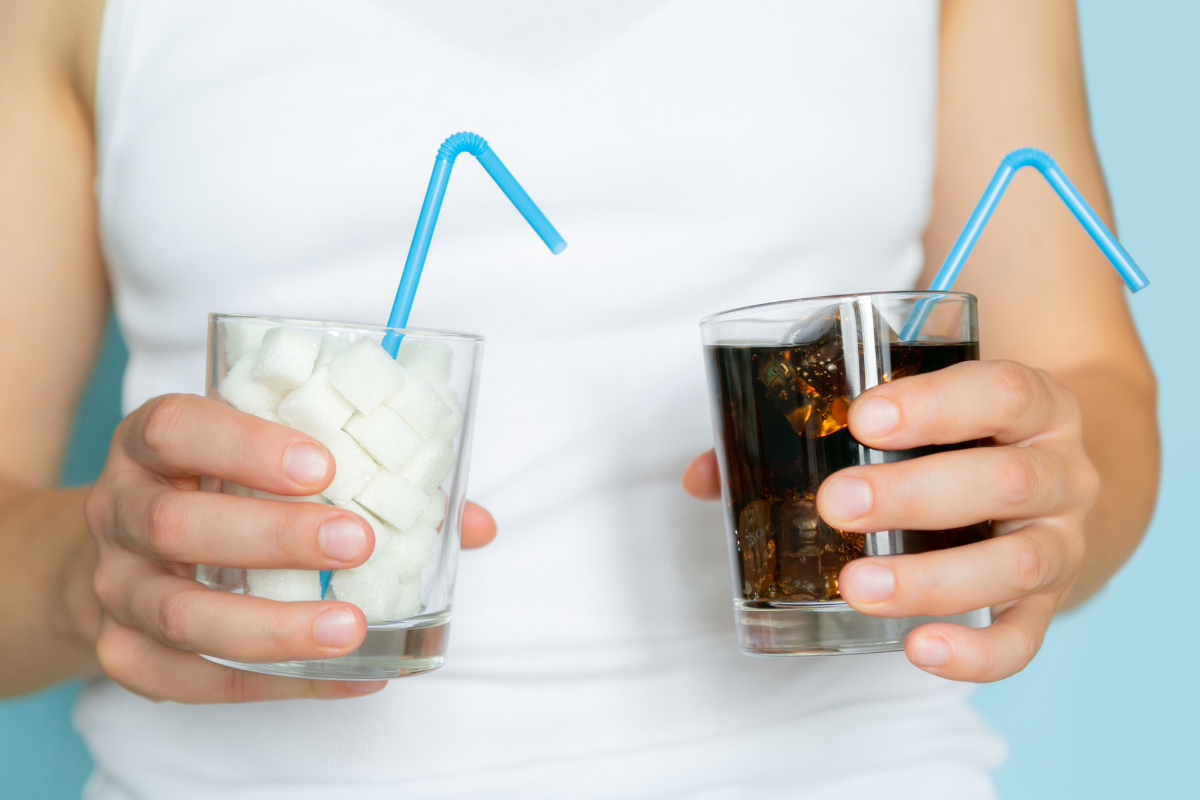Sugar Consumption impacts Metabolic Disorder: I have a sweet tooth. I look at brownie with dollop of ice-cream and I forget immediately how much sugar and refined flour it will have that can probably be half of the calories that I need in full day. Dietary guidelines advise that people limit added sugars to less than 10% of their daily calorie intake. For a daily intake of 2,000 calories, added sugar should account for fewer than 200 calories.
World Health Organization (WHO) advised that sugar Consumption impacts Metabolic Disorder people eat half this amount, with no more than 5% of their daily calories coming from added sugar. For a diet of 2,000 calories per day, this would amount to 100 calories, or 6 tsp, at the most. One must limit our sugar consumption as it may result in below issues:
- Tooth decay: very common in kids especially when they too much of sugar. Sugar feeds bacteria that live in the mouth. When bacteria digest the sugar, they create acid as a waste product. This acid can erode tooth enamel, leading to holes or cavities in the teeth.
- Weight Gain and Obesity: Rates of obesity are rising worldwide and added sugar, especially from sugar-sweetened beverages, is thought to be one of the main culprits. Sugary beverages don’t curb your hunger, making it easy to quickly consume a high number of liquid calories. This can lead to weight gain. Drinking a lot of sugar-sweetened beverages is linked to an increased amount of visceral fat, a kind of deep belly fat associated with conditions like diabetes and heart disease
- Acne: Sugary foods quickly spike blood sugar and insulin levels, causing increased androgen secretion, oil production and inflammation, all of which play a role in acne development.
- Heart Attack: Evidence suggests that high-sugar diets can lead to obesity, inflammation and high triglyceride, blood sugar and blood pressure levels — all risk factors for heart disease. Additionally, consuming too much sugar, especially from sugar-sweetened drinks, has been linked to atherosclerosis, a disease characterized by fatty, artery-clogging deposits.
- Type-2 Diabetes: prolonged high-sugar consumption drives resistance to insulin, a hormone produced by the pancreas that regulates blood sugar levels. Insulin resistance causes blood sugar levels to rise and strongly increases your risk of diabetes.
- This can also lead to higher risk of cancer, can lead to depression, fatty liver and fasten skin ageing process.
So many times, we hear someone say people with high rate of metabolism are blessed because they can eat better and their body consume the energy that is produced. Metabolism is the process your body uses to get or make energy from the food you eat. Food is made up of proteins, carbohydrates, and fats.
Chemicals in your digestive system break the food parts down into glucose(sugar) and acids, your body’s fuel. Your body can use this fuel right away, or it can store the energy in your body tissues, such as your liver, muscles, and body fat. Understanding the relationship between sugar consumption impacts metabolic disorder can help manage how your body processes energy.
A metabolic disorder occurs when abnormal chemical reactions in your body disrupt this process. When this happens, you might have too much of some substances or too little of other ones that you need to stay healthy. There are different groups of disorders.
Some affect the breakdown of amino acids, carbohydrates, or lipids. Another group, mitochondrial diseases, affects the parts of the cells that produce the energy. You can develop a metabolic disorder when some organs, such as your liver or pancreas, become diseased or do not function normally.
Sugar Impacts Metabolic disorders can be caused because of below reasons:
- Metabolic Pathways: Food is broken down in a series of steps by cellular enzymes (proteins that catalyse the conversion of compounds called substrates) into products with a different biochemical structure. These products then become the substrate for the next enzyme in a metabolic pathway. If an enzyme is missing or has diminished activity, the pathway becomes blocked, and the formation of the final product is deficient, resulting in disease. Low activity of an enzyme may result in the subsequent accumulation of the enzyme’s substrate, which may be toxic at high levels.
- Genetic Mutations: The molecular blueprint for nearly all enzymes, structural proteins, cellular transport proteins, and other constituents that are responsible for carrying out the complex reactions involved in metabolism is stored as deoxyribonucleic acid (DNA) in the nucleus of the cell. A small amount of DNA of critical importance to metabolism also is contained in cellular organelles called mitochondria. DNA is organized into smaller units, termed genes, which direct the production of specific proteins or enzymes. When a gene is mutated in such a way as to produce a defective enzyme with diminished or absent function, it can lead to metabolic disorder.
- Inheritance: Sometimes children gets metabolic disorder from their parents. There are higher chances of metabolic disorder being transferred from father or mother to their offspring. Child can show this disorder from beginning or may show symptoms later in life, depending on which kind of disorder it is.
What one should be aware of there body language. Body does show us sign and symptoms if something is not right with it. One has to observe and read these signs and consult doctor. One should not ignore them for long till they become diseases.



